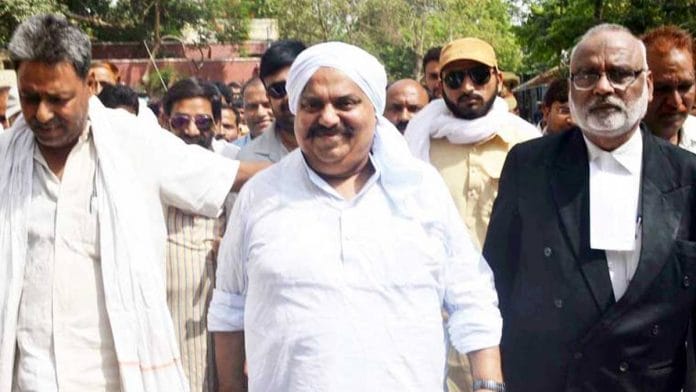Atiq Ahmed’s life was one fraught with crime. From kidnapping, extortion, to murder, the gangster-turned-politician had an endless list of offences to his name. However, his political connections and muscle power ensured no one could touch him.
Atiq and gangsters like him, driven solely by their thirst for blood, are a blight on their communities. Atiq’s first murder involved a rival from his own faith. This was a betrayal of his religion, which teaches that killing one innocent person is akin to killing all of humanity.
Atiq was no hero
It is crucial to note that certain ideologues in the English mainstream media attempted to depict Ahmed as modern-day Robin Hood, exacerbating the harm he had already caused. These dishonest intellectuals are pursuing a narrative-building agenda that seeks to portray Muslims as victims. In doing so, they overlook the damage caused by such figures to the community.
The greatest irony does not stem from Atiq’s ability to wield power in Uttar Pradesh despite committing crimes against humanity; it comes from a specific group of intellectuals who sought to portray the state’s action against him as an attack on Muslims. This is especially disheartening since Pasmanda Muslims are often victims of such atrocities. All India Majlis-E-Ittehadul Muslimeen (AIMIM) chief Asaduddin Owaisi compared Ehsan Jafri’s 2002 murder with Atiq’s in a recent tweet, stating that he was the second Muslim ex-MP after Jafri to be killed brutally. In fact, he had even given a ticket to Atiq and his wife, Shaista Parveen, in 2021.
By manipulating their perceptions and making them believe that they are victims because a Muslim don-turned-politician was killed, these leaders demonstrate a lack of genuine concern for the welfare of ordinary Indian Muslims, and the intent to use them as pawns and vote banks. Muslims, thus, have been the biggest victims of Atiq’s actions.
Also read:
Media, intellectuals victimising Muslims
Media outlets and politicians like Owaisi are attempting to downplay Atiq’s criminal record and highlight his religious identity as a Muslim. They paint him as a community idol, a Muslim power symbol, snatching agency from Muslims and falsely representing them as victims of fascism.
As per UP police records, Atiq’s brother Ashraf was allegedly involved in the abduction of two minor Muslim girls from a madrasa. The girls were reportedly raped repeatedly at gunpoint and thrown in front of the madrasa gate the following morning. “Out of the top 20 criminal cases against the duo, the Ahmed brothers targeted members of the minority community in 13,” said a police official as per an ANI report. Therefore, considering them idols and protectors of the Muslim community is a highly misplaced idea.
The truth is that evil victimises not only its enemy but also its immediate family, the community to which it belongs, as well as the country and humanity as a whole. It is evident that Atiq taught his own children wrong morals; they became victims of his cruelty and were unable to live normal and healthy lives, eventually meeting the same fate as their father. Those who have the best interests of Indian Muslims at heart should caution them about the evils that exist within their own community instead of filling their minds with a sense of victimhood.
Atiq’s fall from grace was swift and dramatic. From a feared don to a jailed ex-politician, he saw his empire crash and burn in a matter of months. His story is also a reminder of the deep-rooted nexus between organised crime and politics in India and the challenges that law enforcement agencies face in tackling this menace. Some may argue that State justice is insufficient for such monsters and that poetic justice is more fitting, but I am sure such acts of revenge can’t bring about real societal reform. The only permanent solution is a strong State and a legal system capable of delivering justice.
Amana Begam Ansari is a columnist and TV news panelist. She runs a weekly YouTube show called ‘India This Week by Amana and Khalid’. She tweets @Amana_Ansari. Views are personal.
(Edited by Zoya Bhatti)






